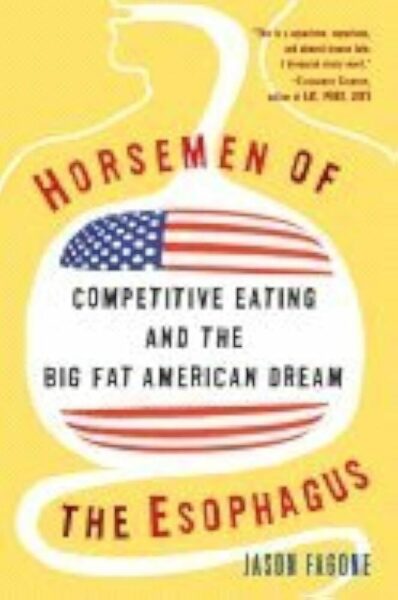The concept of the movie Minority Report (2002) involves a futuristic police force that can predict future crimes and intervene, as well as preemptively punish the to-be-offenders. One of my favorite lines, which you’ll hear in this trailer, is “I’m placing you under arrest for the future murder of Sarah Marks.”
I bring this up because Thursday’s daf (still trying to stay ahead of the game because of the busy weekend ahead) deals with the deeper philosophical questions undergirding such a harsh punishment for teenagers. The mishna says:
מַתְנִי׳ בֵּן סוֹרֵר וּמוֹרֶה נִידּוֹן עַל שֵׁם סוֹפוֹ. יָמוּת זַכַּאי וְאַל יָמוּת חַיָּיב, שֶׁמִּיתָתָן שֶׁל רְשָׁעִים – הֲנָאָה לָהֶן וַהֲנָאָה לָעוֹלָם.
The idea is that the son’s behavior predicts future wrongdoing, and it’s a karmic benefit, of sorts, for the son to die before the more serious crimes are bound to occur. Rabbi Yosei predicts:
הִגִּיעָה תּוֹרָה לְסוֹף דַּעְתּוֹ שֶׁל בֵּן סוֹרֵר וּמוֹרֶה, שֶׁסּוֹף מְגַמֵּר נִכְסֵי אָבִיו וּמְבַקֵּשׁ לִמּוּדוֹ וְאֵינוֹ מוֹצֵא, וְיוֹצֵא לְפָרָשַׁת דְּרָכִים וּמְלַסְטֵם אֶת הַבְּרִיּוֹת.
We already know, he explains, that this kid is a wrong ‘un, and will eventually eat up his father’s assets, forsake his schooling, and end up a highway bandit.
In the context of teens, the incapacitative punishment rationale might seem extreme. Indeed, the last two decades have seen advances in neuroimaging and developmental psychology that suggest that the prefrontal cortex, which is responsible for restraint, self control, perspective taking, and other salutary aspects of cognitive and emotional maturity, continues developing well into a person’s mid-20s. These findings have contributed, in the United States, to a more enlightened view on juvenile punishment, such as the abolition of the death penalty and narrowing the framework of life without parole–with the understanding that juveniles have the capacity to change. Still, the idea of incapacitation and that “people don’t change” has a lot of popular and policymaking purchase, and the sages are no different.
The issue of preemptive punishment of rebellious sons serves as a gateway for the rest of the daf, which addresses other predictive punishments, especially that of burglars. At issue is the Talmudic self-defense regime. Generally speaking, common law recognizes three aspects of self-defense: (1) stand your ground (permitting any person facing a violent attack to defend themselves), (2) castle doctrine (limiting the immunity from prosecution to people in their own home), and (3) duty to retreat (requiring the person to leave the situation unless there is no other choice). Most of the burglar discussion that follows engages with something akin to the castle doctrine.
According to the Mishna, burglars, like rebellious sons, are preemptively punished–namely for the possibility that the homeowner will kill them to defend his property. The gemara predicts the encounter will play out in this way: the burglar, predicting that the homeowner will resist the burglary, will decide to preemptively kill the homeowner. But if the burglar gets out safely with vessels, there’s some controversy over whether he is liable for the theft: according to Rav, presumably the deterrent effect is unnecessary, since the person was willing to risk death when he came in, and the vessels are still legally owned by the homeowner.
An intervening factor is the question whether, in killing the burglar, the homeowner would be justified or not (such as if it is a father killing a son). If not, says Rav, then even if the burglar breaks something in the house, he is not liable for it; but Rava and the the other sages disagree and would charge the burglar for the destruction. You’d think the majority opinion here is obvious–you break it, you pay for it–but what they want to highlight is that the burglar is liable even if the damage was unintentional.
The next issue has to do with the proper punishment when two transgressions occur: a theft and a Shabbat violation. Since, for the latter, one is to die by stoning, what happens if one steals a purse during Shabbat? According to Rav Bivai, picking up the purse happened before the Shabbat violation (as only carrying the purse into the public domain would be a violation of Shabbat) and thus the person must pay for the theft (presumably before being stoned). But if the person dragged the purse without picking it up, then the violation and the Shabbat violation occur simultaneously, and then the person must only be stoned. Still, the gemara says, the burglar must return the purse, and if he destroys it, he must compensate for it.
There’s a weird anecdote about the controversy between Rava and Rav: once, Rava’s rams were stolen by burglars. When they came back to return them (nice burglars!), Rava said, “keep them–according to Rav you have acquired them by stealing them.” I’m assuming that Rava is being cynical here and trying to use this scenario to show the absurdity of Rav’s position, but I also worry that the irony will be lost on the burglars and they’ll just keep the rams.
The rabbis now turn to figure out when the homeowner may kill the burglar. The baraita says: ״אֵין לוֹ דָּמִים. אִם זָרְחָה הַשֶּׁמֶשׁ עָלָיו״ (“if the sun shone on him, no blood shall be shed on his account.” The sages think that this intends to elucidate that, [only] if it’s as clear as sunlight that the burglar intends to kill you, you may kill him first. Unfortunately, there’s also a contradictory baraita: ״אִם זָרְחָה הַשֶּׁמֶשׁ עָלָיו דָּמִים לוֹ״ (“if the sun shone on him, blood shall be shed on his account”), and the rabbis resolve this by saying that if it is clear that the burglar comes in peace, the homeowner must refrain from killing him. But this leaves a contradiction: what happens if the homeowner is unsure of the burglar’s intentions? The rabbis resolve this by assuming that the first case involves a father burglarizing his son’s residence: the father has compassion for the son, and thus the son might safely assume that his father would not kill him, and should therefore refrain from killing the father. The second case involves a son burglarizing the father’s residence, where the father has no guarantee of the son’s nonviolence and thus more likely to kill him.
This sounds nuts, because paradoxically this bit gives the father more leeway for self-defense than the son. So, perhaps to alleviate the tension, Rav interjects and says that he would kill anyone who broke into his house except for Rav Hanina, because it’s well known that Hanina is a righteous man and would mean him no harm. The others raise their eyebrows: if Hanina is such a righteous man, why would he break into Rav’s house? Rav explains: even if he did, he would have mercy on me like a father has on his son.
What about a burglar caught on Shabbat? That depends on which of the contradicting baraitas you prefer. If you prioritize the self-defense of the homeowner, it can be exercised on a weekday as well as on Shabbat. If you prioritize the burglar’s safety, Rav Sheshet explains that the burglar must be saved if he is critically injured during the crime.
As to who has standing to kill in self-defense, the rabbis interpret the baraita to apply only to the homeowner himself (whose property is at risk from the burglar), not to third parties. But if the burglar is likened to a רוֹדֵף (pursuer), whom anyone can kill to save the pursued party, why limit the right to self-defense? Incidentally, modern criminal law typically includes defense of others as well as self-defense, but this is more complicated, from a philosophical standpoint, than it appears. Anyway, the bible’s use of passive voice in the context of a murderer, מוֹת יוּמַת (“he shall be put to death”) is implied to apply here too, in terms of a universal permission and a universal mode of execution. But other sages worry that the law of murderers does not apply here, as it appears in proximity to the law of vendettas, and as we’ve seen in a prior verse, having two cases together implies that they are not aiming to elucidate a general principle but rather to specify the law as to those two cases.
When describing the burglary scenario, the biblical text uses the term מַחְתֶּרֶת (actually entering the property). While the sages believe that burglars are liable regardless of whether they are found in the property or on the roof, in the backyard, etc., the idea is that an act of breaking in obviates the homeowner’s need to forewarn the burglar: מַחְתַּרְתּוֹ זוֹ הִיא הַתְרָאָתוֹ, the break-in itself constitutes the warning.
We end with a few final insights about pursuers and self-defense against them:
If the pursuer is a minor, it might be possible to rescue the pursued party without killing him; nevertheless, Rav Huna believes the killing is permitted, because he disputes the aforementioned need for forewarning.
If a pregnant woman’s life is threatened by her fetus (the pursuer, in this case), it is okay to save her by killing the fetus, unless the head is already out–even though the baby is considered a live person, what is really pursuing the woman is misfortune from the heavens, rather than the newborn (I can think of many discomfiting permutations of this logic).
A third party who sees hot pursuit may try to dissuade the pursuer from killing the pursued, but it is not necessary (because forewarning is not required–or, at least, not required when it appears that the person is acting with intent). The only time the forewarning is required is when the third party cannot rescue the pursued party because he is standing on the other side of a river.





